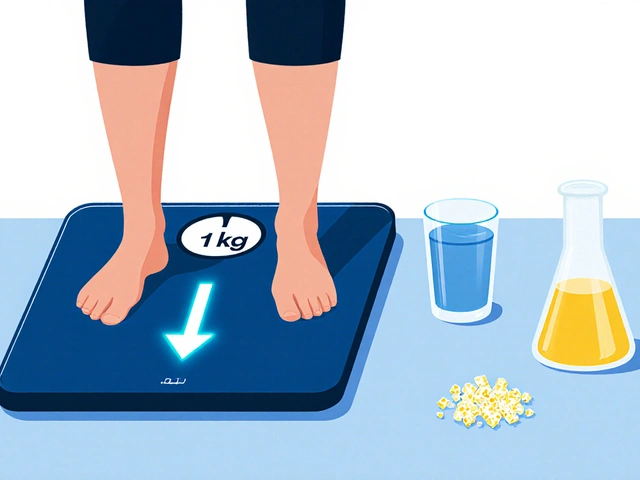Balance: How Medications and Health Issues Change Your Stability
Feeling unsteady or dizzy can be scary. Often medications, thyroid problems, or heart issues are the cause — not just aging. This page helps you spot common causes, lower your risk, and find the most useful reads on nurx.su that dig deeper into each problem.
Quick, practical steps if you feel off-balance
If you wake up dizzy or notice new unsteadiness, pause and check a few things. Are you taking a new medicine (or more than one)? Did you drink alcohol recently? Are you dehydrated or haven’t eaten? Many drugs — like blood pressure meds, diuretics, some heart rhythm treatments, and even sleep aids — can slow your reflexes or affect inner-ear function.
Simple actions you can take right now: sit or lie down until the feeling passes, avoid driving, sip water, and write down when symptoms started and which drugs you took. If you have chest pain, fainting, or severe shortness of breath, get emergency care. For ongoing dizziness, schedule a call with your doctor and bring your medication list.
Which conditions and drugs commonly affect balance
Vertigo and inner-ear problems: Over-the-counter meclizine is a common fix for vertigo — our Meclizine for Vertigo article explains how it works and what to expect. If dizziness is sudden and severe, inner-ear causes or stroke need to be ruled out.
Heart and thyroid issues: Irregular heart rhythms and thyroid disorders can make you lightheaded. Read Cordarone (amiodarone) and the Thyroid & Arrhythmias pieces to learn how heart meds and thyroid levels change blood flow and balance.
Medications and interactions: Alcohol plus meds like spironolactone or sedatives can make dizziness worse. If you mix meds that lower blood pressure, you may feel faint when standing. Our Spironolactone and Alcohol and drug-interaction posts show real examples and safe steps to reduce risk.
Sleep and recovery: Over-the-counter sleep aids such as doxylamine can cause next-day grogginess and unstable balance. If you’re using sleep meds regularly, talk with your clinician about timing and safer options.
Long-term treatments: Some chronic meds — nitrates, diuretics, and certain antibiotics — affect balance indirectly through blood pressure changes or electrolyte shifts. Articles like Nitrate Medications Explained and Top Lasix Alternatives cover what to watch for and when to test electrolytes.
Want targeted reading? Start with "Meclizine for Vertigo" if dizziness feels like spinning. Choose "Thyroid Disorders and Arrhythmias" if you notice palpitations with your imbalance. If a new prescription coincided with symptoms, check our pieces on safe online pharmacies before refilling.
Balance problems are rarely mysterious when you match symptoms with medications and health history. Track symptoms, avoid risky combos (alcohol + sedatives), and get medical advice for persistent or severe problems. Use the linked articles here to learn what likely causes are and what to ask your clinician next.

Chlorthalidone and Potassium: Balancing Electrolyte Levels
As a copywriter, I've recently delved into the topic of Chlorthalidone and Potassium: Balancing Electrolyte Levels. Chlorthalidone is a diuretic medication often prescribed to manage high blood pressure and edema, but it can sometimes lead to low potassium levels. To maintain a balance, it's essential to monitor our electrolyte levels, especially potassium, to prevent any complications. We might need to incorporate potassium-rich foods or supplements into our diet to keep things in check. Remember, always consult with your healthcare provider before making any changes to your medication or diet.
View More



